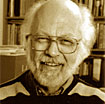Commentary on Isaiah 49:8-16a
Isaiah 40-66 uses female images for God more frequently than any other Old Testament body of literature.
The image used is always maternal. For example, Isaiah 42:14 presents God as pregnant and giving birth; 66:12-13 portrays God as nursing and comforting the newborn. The metaphor of God as mother is also basic to understanding the text we are considering. Such an image invites modern preachers and teachers to make more common use of this image of God that is so often neglected.
The historical context is Israel in exile, or shortly thereafter, and the people are presented as “barren” (49:21; see 54:1), that is, unable to bring about their own future. Only God can make that future possible and the image of God as mother is used to emphasize the point. The result is described in the larger context of this passage (49:21): “I was bereaved and barren, exiled and put away–so who has reared these? I was left all alone–where then have these [children] come from?” And the point is that God is the one who is responsible for birthing all these children and, as a result, the land is full of them. God has enabled Israel to thrive.
All metaphors used for God have their “yes” and their “no.” The “no” in the mother metaphor is lifted up especially in 49:14-15. It is possible for the actual mother of a child to forget her child, even her nursing child. It is possible for the literal mother of the child to show no compassion for a child she has borne. But it is not possible for God: “Even these may forget, yet I [God] will not forget you.” Yes, something is not possible for God. God is faithful and this means that God’s options are limited–God will not, indeed cannot forget Israel. This is an act of divine self-limitation. In fact, Israel is “inscribed” (or tattooed!) “on the palms of [God’s] hands” (see 44:5). Israel has thereby become part of the very identity of God. God will forever be known as the God of Israel, come what may. Israel can count on God, not only to bring its future to birth, but to sustain its ongoing life. God is mother in a way that no earthly mother can be.
The Exodus from Egypt and, especially, the wilderness wanderings inform the imagery used in 49:8-13 (as also in 35:1-10; 40:3-4, 11; 41:17-20; 42:16; 43:16-21; 48:20-22; 51:9-10). It is these historical traditions, especially the exodus through water and the feeding in the wilderness, that probably give birth to the maternal images for God.
The “time of favor” and “day of salvation” in 49:8 have reference to the deliverance of Israel from Babylonian exile (see 55:6-7 and its usage in 2 Cor 6:2) and their being returned to their land. God calls the people out of the darkness of exile and invites them to a journey back home, a journey through the wilderness wherein they shall not want for food or water or protection. God himself will be their guide and prepare the way in the wilderness (see 40:3-5).
The people of Israel, who have been scattered across the landscape of the Middle East, shall come from all directions (Syene is a place in Upper Egypt) and be settled in their own land once again. Even more, their cities will be rebuilt and repopulated (49:16b-21) and their enemies shall oppress them no more (49:22-26; see Jer 31:15-17, 38). The chapter concludes with a ringing testimony to God as the “Savior” and “Redeemer” and “Mighty One of Jacob.” It is notable that the language of salvation used here for God’s deliverance is much more than spiritual in nature. God’s salvation includes very earthly realities, as was also the case in the Exodus from Egypt (see Exod 15:2).
God is the subject of the key verbs here and God’s actions are repeatedly stated in personal terms: I have answered you; I have helped you; I have kept you; I have given you. See the similar language in Isa 42:6-7. The latter text also spells out the theme of mission that is only alluded to in 49:8: To be given as a “covenant to the people” is to be “a covenant to the people, a light to the nations, to open eyes that are blind, to bring out the prisoners from the dungeon, from the prison those who sit in darkness.”
A hymnic verse (49:13) gathers the import of what God will do, calling upon various elements of the natural order to sing in praise to God (cf. 44:23; Jer 51:48; Rev 18:20). All creation is invited to join in this song. Such natural imagery should not be dismissed as hyperbolic or simply poetic imagination, but a lively recognition that God’s deliverance of Israel has cosmic effects. Heavens and earth, mountains and forests will become more attuned to what God created them to be.
These elements of God’s creation are invited to praise God for the comfort that God has already brought the people of Israel (see 40:1; 66:13 for this theme) and the compassion God will show forth in the journey that lies ahead. There is explicit reference to Israelites as those who have been suffering through the time of exile; this reality is not papered over or thought to need no further consideration. The suffering of the people remains an integral part of who they are and will continue to be. God’s “compassion” signals a genuine entering into this suffering situation of the people rather than remaining distant and aloof to what they have been through (see Exod 3:7, “I know their sufferings”).
This divine comfort of the people and compassion for them is illustrated by what follows in 49:14-16a. Zion is imaged as a mother (as in 66:6-16; cf. 50:1; 54:6) and, for all the comfort that this earthly mother of Israel can bring to the people, God’s comfort and compassion is unsurpassable and ongoing.

May 25, 2008